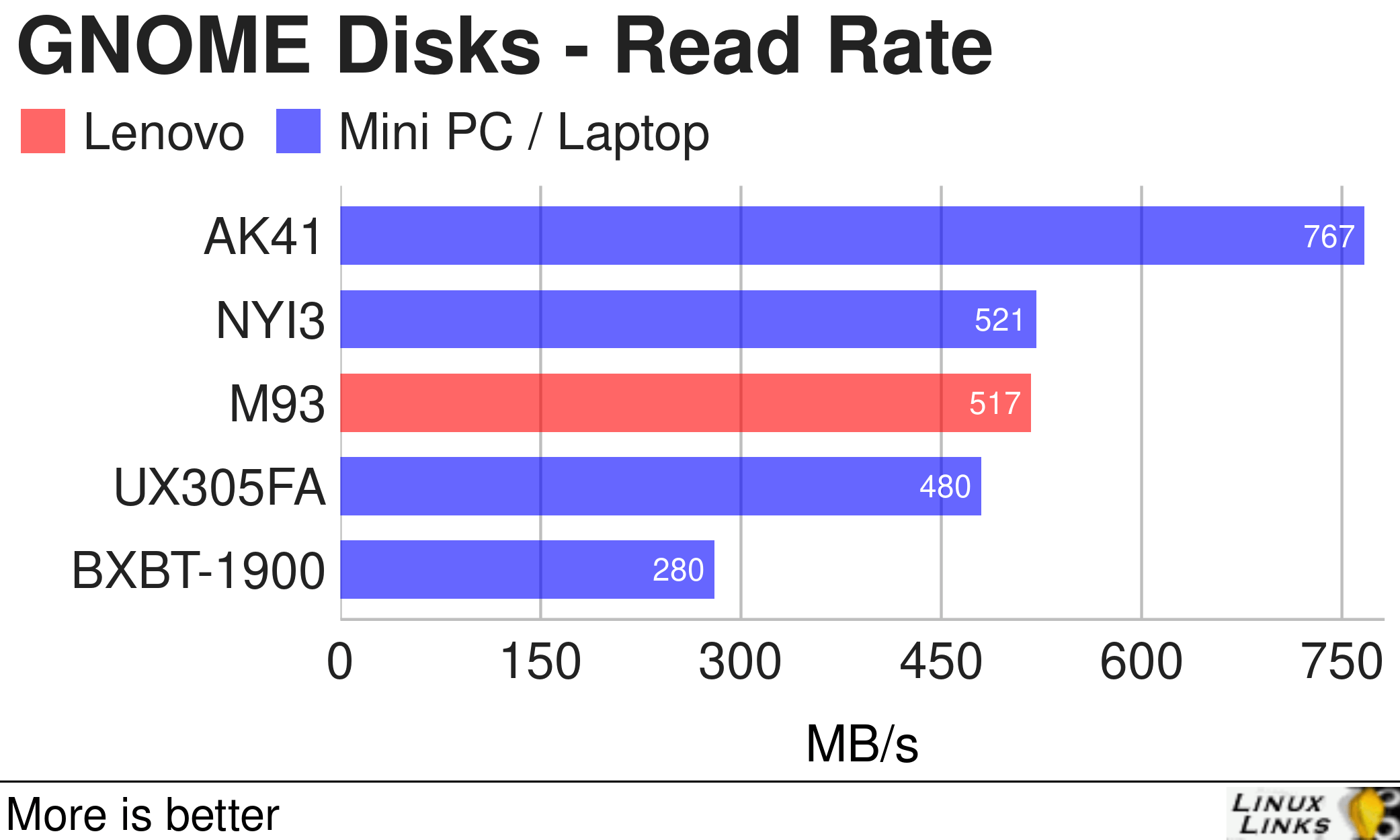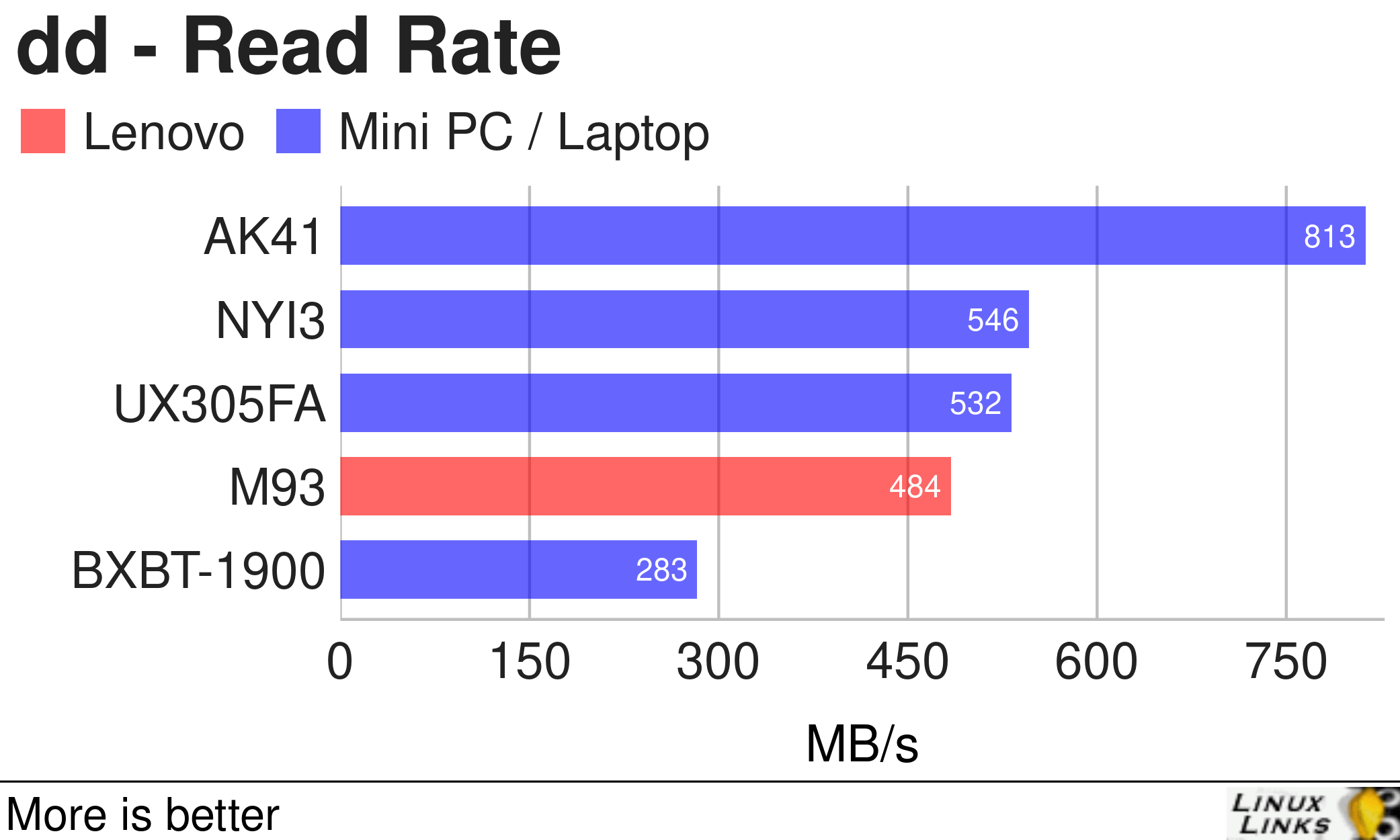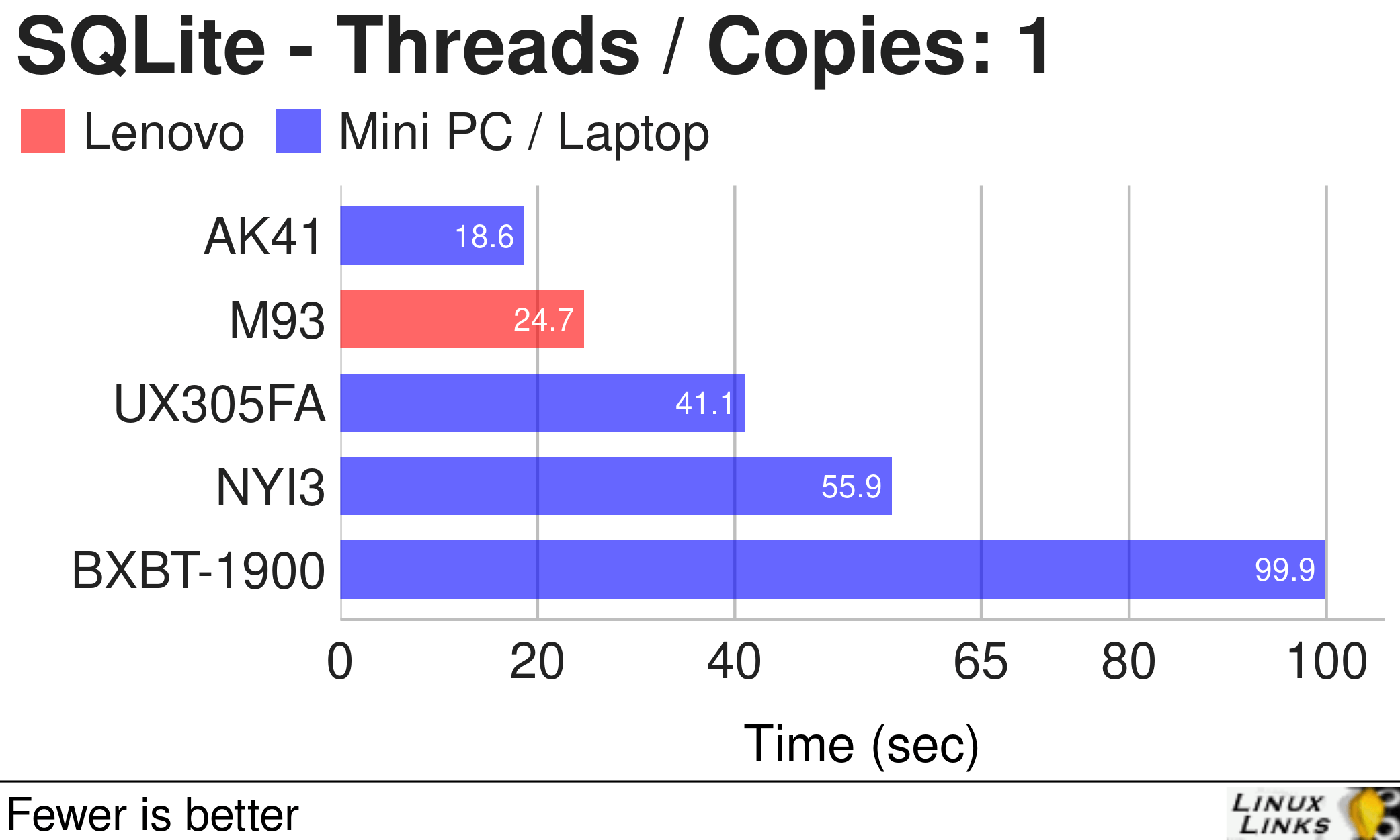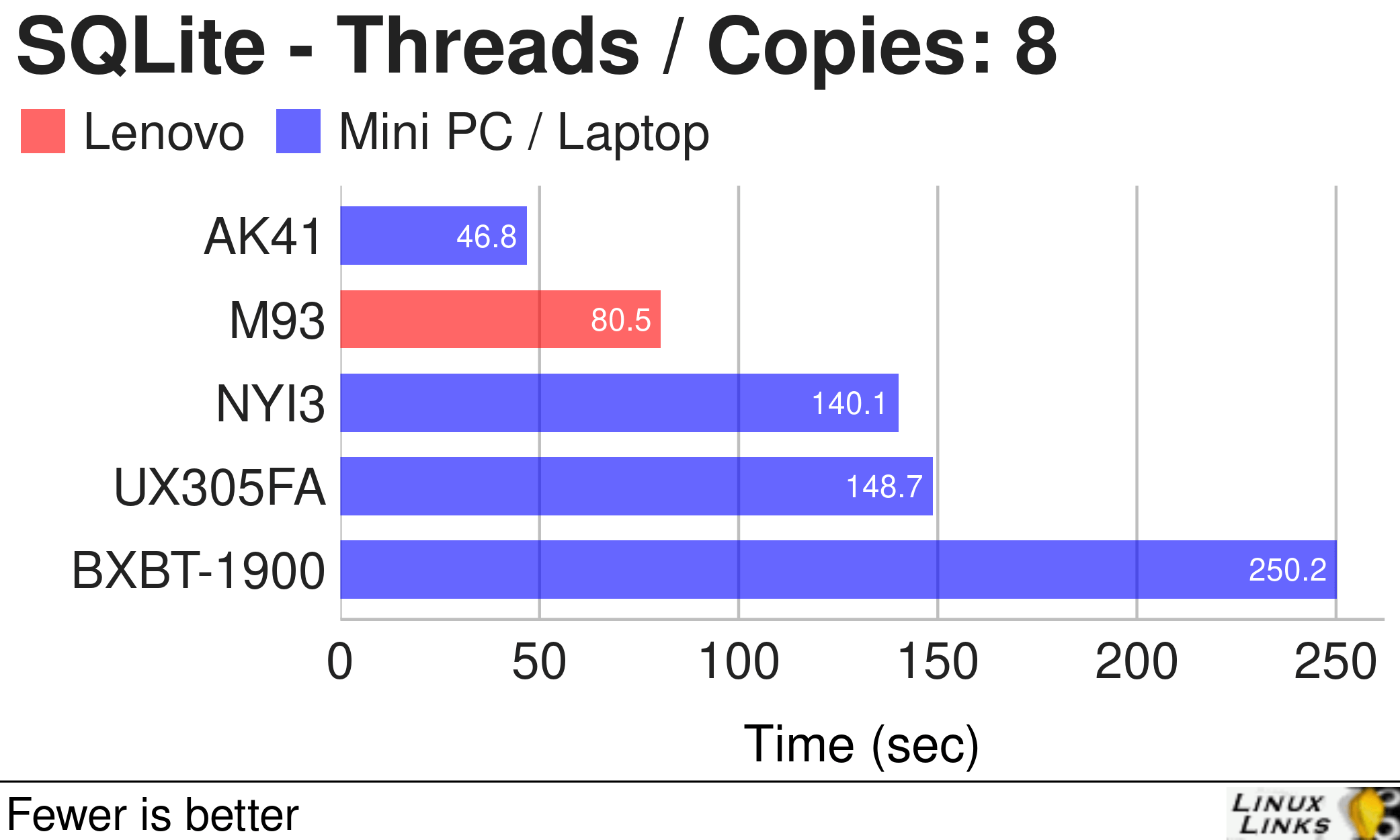Last Updated on April 19, 2021
Non-Volatile Memory Express (NVMe) is the latest industry-standard software interface for PCIe SSDs. NVMe enables drives to benefit from the same “pool” of lanes that directly connect to the CPU. This type of SSD can achieve read speeds in excess of 3000MB/s and write speeds over 2000MB/s making them the fastest available.
You can see a clear difference in performance when you use NVMe, with a read/write throughput far higher than the hard drives and slower SATA SSDs also lagging somewhat behind. But it’s not a huge difference.
The AK41 includes a 128GB NVMe M.2 SSD. None of the other machines, including the Lenovo M93, support NVMe SSD.

The AK41’s read rate recorded by GNOME Disks was far superior than the other three machines. The excellent I/O with the AK41 (combining the fast NVMe SSD with DDR4 RAM) helped boost the speed of Manjaro’s desktop, but as our previous tests show it lags behind the Lenovo M93 in almost all other areas.
We put an inexpensive SSD in the Lenovo M93 (replacing the supplied mechanical disk) to bring price parity between the Lenovo M93 and the AWOW AK41 and NYI3 machines.
The BXBT-1900 recorded a fairly woeful 280MB/s read rate, even though it’s equipped with a 128GB SanDisk SSD with much better specs. To put that figure into context, we tested a SanDisk Ultra 128 GB Dual Type-C USB 3.1 Flash Drive on the AK41. The Flash Drive offers a reversible connector including both the dual USB Type-C and USB Type-A connectors [the AK41 offers both types of connector]. This USB Flash Drive attained read transfer rates of 157MB/s in both the Type-C port and the Type-A port. That’s not far off the BXBT-1900’s SSD.
We wanted to verify the GNOME Disks tests as some of the numbers seemed a little on the low side. We therefore performed an extra disk speed test with dd.
$ sync; dd if=/dev/zero of=tempfile bs=1M count=1024; sync
$ sudo /sbin/sysctl -w vm.drop_caches=3
$ dd if=tempfile of=/dev/null bs=1M count=1024
The chart below shows the findings (the test on each machine was run 5 times).

We didn’t test write speed. Remember, you cannot unmount a filesystem that’s in use. And the GNOME Disks write benchmark is destructive.
We also ran a couple of SQLite benchmarks. SQLite is a relational database management system contained in a C library.


$ phoronix-test-suite benchmark sqlite
This is a simple benchmark of SQLite. At present this test profile just measures the time to perform a pre-defined number of insertions on an indexed database.
The AK41 was the clear winner on both tests. Sadly the Lenovo M93 has no M.2 socket on its motherboard.
Next week’s blog will move on to testing multimedia on the Lenovo M93.
Pages in this article:
Page 1 – Introduction / System
Page 2 – Processor
Page 3 – Memory
Page 4 – Graphics
Page 5 – Disk
Complete list of articles in this series:
| Lenovo M93 Ultra Small Desktop PC | |
|---|---|
| Week 6 | Recording video using OBS Studio |
| Week 5 | We put the M93 through some light gaming |
| Week 4 | Multiple operating systems running on the Lenovo M93 |
| Week 3 | Video and audio are tested on the Lenovo machine |
| Week 2 | Benchmarking the Lenovo M93 Ultra Small PC with other low power machines |
| Week 1 | Introduction to the series including wiping Windows and installing Manjaro |
This blog is written on the Lenovo M93 Ultra Small Desktop PC.
| Lenovo M93 | AWOW AK41 | |
|---|---|---|
| Type | Tiny Desktop PC | Mini PC |
| Processor | Intel i5-4590T 2.00 GHz (Turbo 3.00 GHz) 4 cores and 4 threads | Intel Celeron J4115 1.80GHz (Turbo 2.5 GHz) 4 cores and 4 threads |
| Chipset | Intel Haswell | Intel Gemini Lake |
| Memory | 16GB DDR3 (1600 MHz) | 8GB DDR4 (2133 MHz) |
| Graphics | Intel HD Graphics 4600 | Intel UHD Graphics 605 |
| Disk | 240GB Crucial SSD | 128GB Foresee NVMe M.2 SSD F900F128GBH |
| AWOW NYI3 | Gigabyte BXBT-1900 | Asus UX305FA | |
|---|---|---|---|
| Type | Mini PC | Mini PC | Laptop |
| Processor | Intel Core i3-5005U 2.00GHz 2 cores 4 threads | Intel Celeron J1900 2.00GHz (Turbo 2.416 GHz) 4 cores 4 threads | Intel Core M-5Y10c 0.8GHz (Turbo 2.00GHz) 2 cores 4 threads |
| Chipset | Intel Broadwell | Intel Atom Z36xxx/Z37xxx | Intel Broadwell-U-OPI |
| Memory | 8GB DDR4 (1600 MHz) | 4GB DDR3 (1600 MHz) | 8GB DDR3 (1866 MHz) |
| Graphics | Intel HD Graphics 5500 | Intel HD 2GB | Intel HD Graphics 5300 |
| Disk | 128GB Kingston NVMe | 250GB Samsung SSD 860 | 128GB SanDisk SSD |
